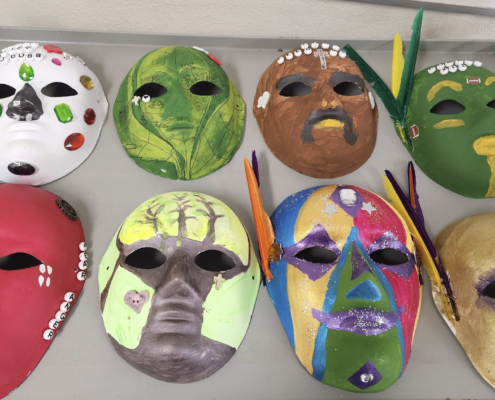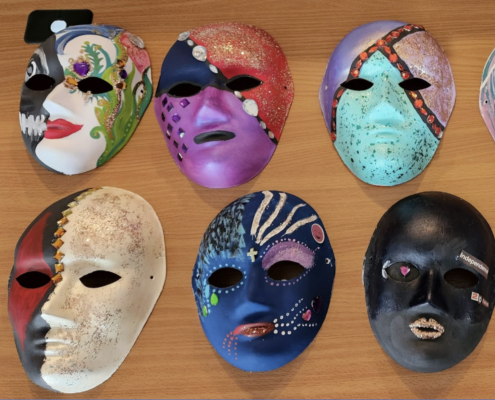Masks of Resilience
What is Resilience?
To celebrate the resilience of those victimized, you have to understand the meaning of resilience. The Oxford Dictionary (n.d.) defines resilience as “the capacity to recover quickly from difficulties; toughness.” Another way to put it is that those who have resilience can thrive regardless of their past experiences.
Acknowledging resilience in a person is an essential element of successfully going through trauma because it provides encouragement to continue to overcome. Often, a supportive community helps facilitate a recovery process for a crime victim. Celebration of the resilient individual, in this case, a victim, is a way to stand with them for their rights – More specifically, the right to be seen, heard, understood, and cared for.
The Person Behind the Trauma
National Crime Victims’ Rights Week (April 24th to April 30th, 2022) is a time to stop and remember those who have been victims of crime. Closer to home, those who have experienced crime in Shasta County are particularly important to us. To reflect on resilience, Family Dynamic, and Visions of the Cross, participants who have experienced crime created “Masks of Resilience.” These masks portrayed their story of resilience. Click here to see the news video on KRCR.
Support for Victims
Family Dynamics – Offers trauma-informed therapy such as Trauma-Informed Cognitive Behavior Therapy, Dialectical Behavior Therapy, Narrative Therapy, and EMDR.
If you would like to request an appointment for an adult, click here. If you are looking for a therapy appointment for a child, click here.
Shasta County Crime Victims Assistance Center – This organization provides support and assistance to those who have experienced crime in Shasta County. The address is 1355 West Street Redding, CA 96001. The Center is open Monday to Friday, 8 a.m. to 5 p.m. to any victim. If you need support please call the center’s phone number at (530) 225-5220. You could also contact the Shasta County Crime Victims Assistance Center website here.
Author: Dara Fields, APCC
Family Dynamics Resource Center
Associate Professional Clinical Counselor (APCC)


